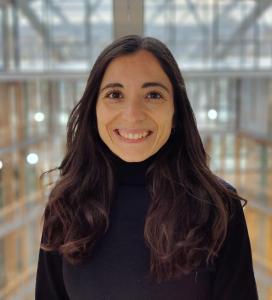
Kühle Temperaturen und viel Sonne – Schweden bietet perfekte Bedingungen für den Anbau von gelben Erbsen und Ackerbohnen. Die kleinen Hülsenfrüchte haben es in sich: Sie strotzen vor Protein, sind klimafreundlich und lassen sich ressourcenschonend anbauen.
In der südschwedischen Kleinstadt Lidköping, am Vänern-See, setzt man große Hoffnungen in das Gemüse. Hier entsteht eine der europaweit modernsten Anlagen zur Herstellung von Erbsenprotein.
„Das Werk ist das Ergebnis von vielen Jahren Planung, Entwicklung und Innovation“, erklärt Magnus Fransson, der für die technische Seite des neuen Produktionsstandorts zuständig ist. „Wir bauen hier nicht einfach nur ein neues Werk, wir schlagen ein neues Kapitel in der nachhaltigen Lebensmittelproduktion für Schweden und Europa auf.“
Das neue Werk ist das erste seiner Art in Schweden. Betreiben wird es Lantmännen Biorefineries, ein Unternehmen, das Getreide und Hülsenfrüchte verarbeitet. Dahinter steht die schwedische Genossenschaft Lantmännen mit ihren 17 000 Landwirtinnen und Landwirten.
In Lidköping wird aus schwedischen Erbsen und Ackerbohnen künftig Protein für pflanzliche Lebensmittel sowie Energieriegel und -getränke isoliert. Für den Bau des Werks, das nächstes Jahr in Betrieb gehen soll, erhielt Lantmännen im April 2025 einen Kredit über 50 Millionen Euro von der Europäischen Investitionsbank.
Schmackhaftere Pflanzen
Im europäischen Lebensmittelsektor tut sich einiges: Junge, innovative Unternehmen eröffnen mit Proteinen auf Pflanzenbasis neue Ernährungsmöglichkeiten. Während sich Lantmännen der Produktion von hochwertigen Proteinen verschrieben hat, will das spanische Unternehmen Heura mit neuartigen pflanzenbasierten Lebensmitteln mehr Geschmack und Vielfalt auf den Tisch bringen.
Heura ist bekannt für seine Fleischalternativen: Burger, Würstchen und Aufschnitt. Das Unternehmen macht aus pflanzlichen Proteinen wie Soja Lebensmittel, die nicht nur nahrhaft sind, sondern auch weniger gesättigte Fette und Cholesterin enthalten als herkömmliche Produkte.
„Was Heura auszeichnet, ist die Forschung im eigenen Haus“, erklärt Alberto Casorati, der als Kreditreferent bei der EIB an dem Projekt arbeitet. „Heura analysiert und verbessert die Mikrostruktur von Lebensmitteln und bildet mit Sojaprotein die Textur und den Geschmack der Originalprodukte nach – ohne Kompromisse beim Nährstoffgehalt.“
Die Europäische Investitionsbank hat im Mai 2025 einen Kredit von 20 Millionen Euro mit Heura unterzeichnet. Mit dem Geld kann sich das Unternehmen neuen Produktkategorien zuwenden, wie Käse, Snacks, Soßen und Pasta auf Pflanzenbasis. Heura will seine Technologie für neue Marktsegmente nutzen und dabei mit anderen Firmen zusammenarbeiten. Denn die Nachfrage nach weniger verarbeiteten, fettärmeren pflanzlichen Produkten, die gut schmecken, wächst und wächst.
„Im Markt für pflanzenbasierte Lebensmittel ist viel Bewegung und Dynamik. Heura ist da mit seinen Innovationen gut unterwegs“, sagt Carmine Marzano, Spezialist für Bioökonomie bei der Europäischen Investitionsbank. „Das ist ein Verkaufsargument.“
Heuras Produkte haben nur wenige Zutaten, darunter so gesunde wie natives Olivenöl extra und mediterrane Gewürze.
„Wir wollen etwas Dauerhaftes schaffen: ein Lebensmittelsystem, das fit ist für die Wirtschaft von morgen“, erklärt Bernat Añaños Martinez, Mitgründer von Heura.

Heura
Anders essen
Lantmännen und Heura sind Teil einer Bewegung, die verändern will, wie wir in Europa Protein erzeugen und konsumieren – mit mehr Rücksicht auf die Umwelt. Lantmännen nutzt dafür neue Technologien, die weniger Wasser, Dünger und andere Ressourcen benötigen:
- Im neuen Werk werden Erbsen durch eine spezielle Technik so gemahlen, dass ihre Proteinstruktur erhalten bleibt
- Durch ein modernes Trennungsverfahren wird das Protein von anderen Bestandteilen wie Stärke und Ballaststoffen isoliert
- Der Trocknungsprozess ist so optimiert, dass weniger Energie verbraucht wird
Mehrwert für die Landwirte

Lantmännen ist an jedem Schritt der Erbsenproduktion beteiligt, von der Züchtung über den Anbau bis hin zu Verarbeitung und Verkauf an die Endkunden. Angebaut werden die verarbeiteten Erbsen vor Ort, was gut ist für die Mitglieder der schwedischen Genossenschaft. Die Nachfrage nach ihrem Gemüse dürfte steigen, ebenso wie der Preis und die Produktion. Das Ergebnis ist eine intelligentere Landnutzung und eine gerechtere Rendite für die Landwirte.
„Die eigentliche Innovation von Lantmännen ist der Mehrwert, den sie für die Landwirtinnen und Landwirte schaffen – ohne die Verbraucher aus dem Blick zu verlieren“, betont Diogo Machado Mendes, der das Projekt bei der EIB als Ingenieur betreut hat.
Lantmännen fördert einen klimafreundlicheren Anbau, bei dem weniger chemische Düngemittel eingesetzt werden. Erbsen und Ackerbohnen ziehen nämlich Stickstoff aus der Luft und speichern ihn über ihre Wurzeln im Boden. Der Boden wird damit nährstoffreicher und braucht weniger umweltbelastenden Stickstoffdünger, dessen Herstellung zudem viel Energie verschlingt.
„Lantmännen kombiniert komplex mit einfach: moderne Präzisionslandwirtschaft mit jahrhundertealten Fruchtfolgen“, sagt Maris Miglans, der für das Projekt zuständige Kreditreferent der EIB. „Was dabei besonders hervorsticht, ist der Kreislaufgedanke. Lantmännen nutzt 100 Prozent der verarbeiteten Erbsen, nichts wird vergeudet.“
Ob Stärke, Ballaststoffe, Schale oder andere Nebenprodukte, die bei der Proteintrennung entstehen – alles kann verwendet werden. Das Kohlendioxid, das bei Verwendung der Stärke entsteht, wird abgeschieden und verkauft. Abnehmer ist ein Unternehmen, das das Gas für seine kohlensäurehaltigen Getränke nutzt.
Die Kreislauforientierung steht auch beim neuen Werk in Lidköping im Mittelpunkt: Der Strom für das Werk stammt aus erneuerbaren Energien und wird vor Ort erzeugt, die überschüssige Wärme zurück in das Fernwärme- und Elektrizitätswerk geleitet, und auch das Wasser für die Produktion wird gereinigt und wiederverwendet.
„Wir verarbeiten lokal angebaute Pflanzen zu hochwertigen Zutaten und verkürzen damit die Lieferketten. So schaffen wir neue wirtschaftliche Chancen im Agrarsektor“, erklärt Fransson.
Ein weiteres Ziel von Lantmännen sind widerstandsfähigere Erbsensorten. Sie sollen dem Klimawandel und trockeneren Bedingungen besser standhalten und zudem höhere Erträge und mehr Protein liefern.
LANTMANNEN PEA PROTEIN INVESTMENTS
Construction and operation of a first of a kind production facility in Sweden for pea protein isolate. The facility will process annually 40,480 tonnes of peas sourced locally from the cooperative members.
HEURA FOODS (IEU G)
The Project finances the RDI programme of Heura Foods, a start-up that produces innovative plant-based food products. It includes RDI CAPEX investments to boost Heura's development capabilities, as well as RDI activities to develop new plant based food products, in several categories.

